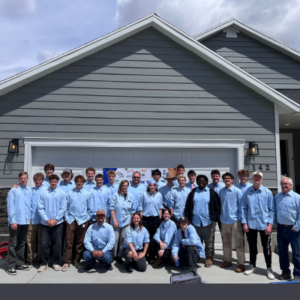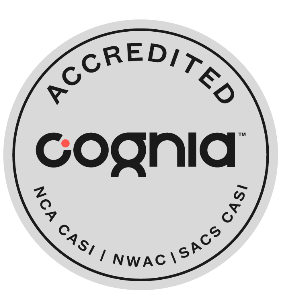The Board of Education received an update on the field test of the Canyons Teacher Effectiveness Support System (CTESS), asked questions and provided suggestions for its refinement. The discussion took place in a special Study Session, scheduled solely for this purpose.
The District is field testing CTESS this school year to meet a 2012 state law on teacher evaluation that includes instructional quality, student growth, and parent and student input. The field study aims to help teachers implement team and individual learning goals while receiving ongoing feedback about classroom techniques and contributions to teamwork. It includes the instructional quality component; the other two components are being developed. CTESS is designed to align with CSD’s unique framework for instruction, the Utah Teacher Effectiveness Standards, and include elements of the Utah State Office of Education’s Model Evaluation System. CTESS aims to:
– Create a growth plan for all teachers, recognizing that in a teacher’s first years they will perform at different levels and rates.
– Ensure that mentoring and coaching for all teachers offer multiple opportunities for public practice, feedback, and self-reflection.
– Use multiple reliable and valid measures to make conclusions about a teacher’s potential to be effective throughout their career.
– Address the importance of a teacher’s willingness to apply feedback by incorporating improvement strategies and supports in the district’s educator effectiveness process.
The Board received a CTESS presentation and update from Human Resources Director Steve Dimond and Evidence-Based Learning Directors Dr. Hollie Pettersson and Amber Roderick-Landward. The trio presented the local history of evaluation systems, which goes back to the 1980s with the former Jordan School District’s JITC, followed by the JPAS introduced in Jordan District in the mid-1990s and used in Canyons School District from 2009-2014. JPAS currently does not align with the CSD framework for instruction, and because copyright prevents JPAS alterations, the Canyons Board of Education voted to allow creation of the CTESS to comply with the new state law.
CTESS has been created over the past three years by the Joint Educator Evaluation Committee (JEEC), a group of principals, teachers and parents nominated to serve a two-year term. Several members of the JEEC were in attendance and addressed the Board about their experiences with the CTESS. They said the CTESS is intended to promote professional learning, goal-setting and growth, rather than punitive measures.
The backbone of the instructional evaluation is the Instructional Priorities Observation Protocol (IPOP). In general, the IPOP is a 15-minute unscheduled observation in which a school administrator provides immediate electronic feedback in a number of areas to help a teacher improve. IPOPs must take place once a year for career educators, and more xx for provisional educators. They are done on an iPad, and when completed, an email is automatically sent to the teacher who was observed. IPOPs can be formal or informal, and are intended to be frequent to provide feedback and support to teachers. Doing so can improve teacher quality, which research has shown can offset or even eliminate disadvantage brought by poverty, Pettersson said. Most CSD teachers have participated in classroom observations, as observers and observes, over the past three years as the classroom observation tools have been designed, tested and refined, she noted.
A survey of provisional teachers, a group that also includes veterans who have moved to the district in the past three years, found high support between 71 percent and 81 percent of 255 respondents for statements that CTESS promotes good conversations about improving classroom practices, is based on standards that teachers endorse, and promotes CSD instructional priorities. Less support 56 percent to 63 percent of respondents was found for statements that CTESS supports outstanding teachers to get better, struggling teachers to become more successful, and improves teaching practices.
Corner Canyon Principal Mary Bailey said CTESS allows administrators to look at many aspects of teaching, give specific feedback to help teachers replicate good practices, and reward teachers for professional development, leadership, and positive risk-taking.
Ridgecrest Elementary Principal Teri Mattson said teachers are able to receive feedback and support under the CTESS model. She said those are particularly helpful and empowering to provisional teachers, and that teachers have reported a noticeable change in students when feedback was implemented.
Dawn Gonzalez, a JEEC member and teacher at Quail Hollow Elementary, said the IPOPs are a growth opportunity for her and helping her to reach her professional goals.Â
Board members had several questions about the specifics of CTESS implementation. For example, several recommended the JEEC refine the lengthy CTESS manual for better understanding and usability.
Board member Clareen Arnold said she felt the CTESS amounted to more work for busy teachers and said teachers she’s talked to don’ t feel that the training or information, which she said was cumbersome in a 180-page manual, has been adequate for them to understand the CTESS. She also wanted to receive more balanced input about the CTESS, particularly from veteran teachers, rather than all positive statements and reports from the presenters, principals, parents and teachers in attendance.
Board Second Vice President Nancy Tingey thanked JEEC members for their work in creating a tool that is positive and growth-promoting as the Board directed.
CTESS next steps include adding a growth component and stakeholder input. The JEEC also will continue to evaluate data and feedback to continue refining the tool and support systems.
To view the presentation or listen to the discussion, please visit BoardDocs and click on the Feb. 10, 2015 Agenda.











